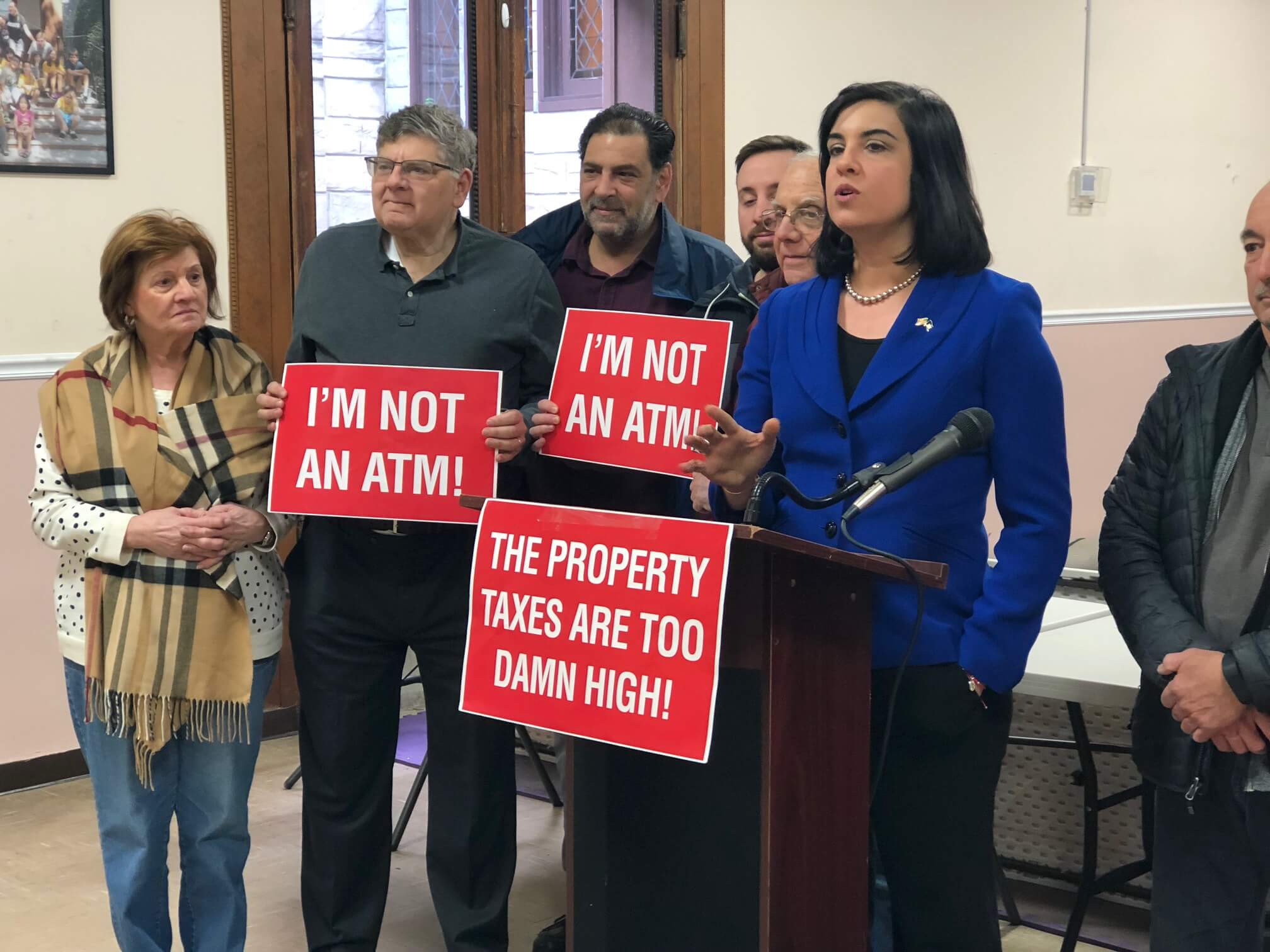Dyker homeowners seek Cuomo’s help to lower property taxes

ebrooklyn media/Photo by Paula Katinas
Carl Esposito’s property tax bill is going to be $9,600 this year. And he’s not happy about it.
“It went up $1,200 from last year,” he said. Esposito, a resident of 64th Street in Dyker Heights, said his parents paid $35,000 when they bought the three-family house in 1961. Today, the home is worth much more than that. But he doesn’t feel rich.
“I’m lucky the house is paid for and I don’t have a mortgage. Otherwise, I don’t know what I’d do,” he said.